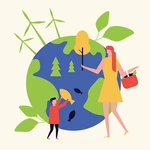Jute
Higgins Insulation's Jute is a natural raw stuff which is a vegetable fiber, similar to cotton and grows in the same manner as sugar cane. It is a long soft, shiny plant fiber that can be manufactured into many products.
Jute is one of the cheapest natural fibers, and is second only to cotton in amount produced and variety of uses. Higgins Insulation's Jute is graded (rated) according to its colors, strength, and fiber length.
The fibers are off-white to brown, and 1-4 m long. Jute is pressed into bales for shipment to manufacturers.
The stalks are cut off close to the ground. The stalks are tied into bundles and retted (soaked) in water for about 20 days. This process softens the tissues and permits the fibers to be alienated. The fibers are then stripped from the stalks in long strands and washed in clear, running water.
Then they are hung up or spread on thatched roofs to dry. After 2-3 days of drying, the fibers are tied into bundles. To grow jute, eco farming is performed, spreading the seeds on cultured soil. When the plants are about 15-20 cm tall, they are thinned out.
About four months after planting, harvesting begins. The plants are usually harvested after they flower, but before the flowers go to seed.
Jute has been used for centuries in carpets, coffee and seed bags and regarded as one of the largest fiber markets in the world. Jute has provided the world with an environmentally friendly dependable natural underlay which approved guarantees for up to twenty years, after which, the Jute underlay could still be recycled.





